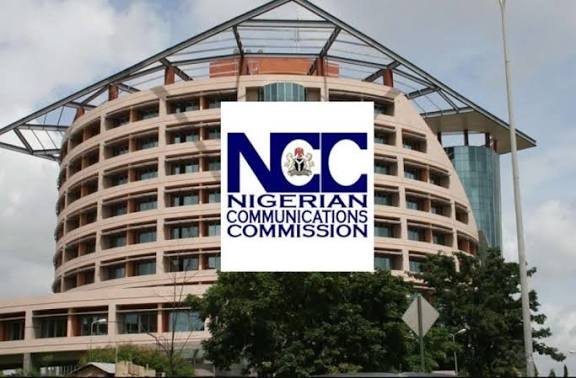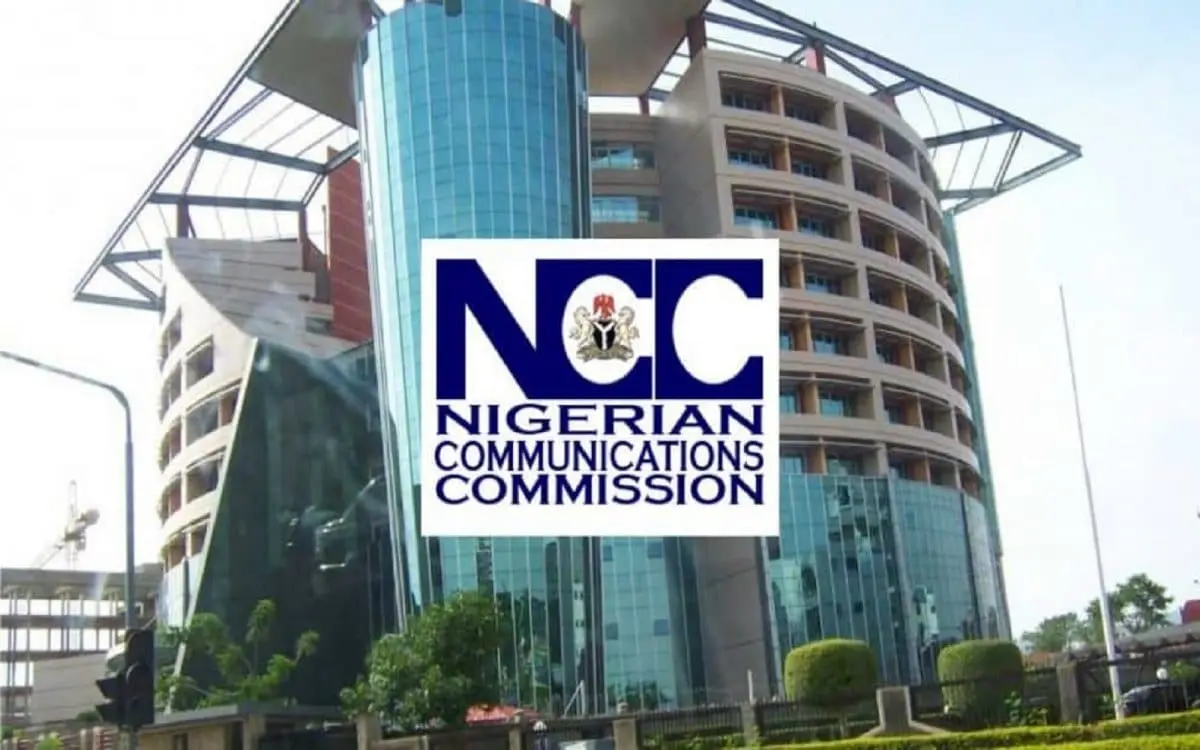16 March, 2024
H.E. Chief Godswill Obot-Akpabio, Con
Senate President
National Assembly
Three Arms Zone, Abuja
Abuja
Dear Chief Godswill Obot-Akpabio:
Re: Request to refer to appropriate anti-corruption agencies allegations by Senator Abdul Ningi that the Senate padded the 2024 budget by arbitrarily and irregularly inserting projects worth N3.7 trillion for investigation and prosecution of those suspected to be responsible where there is relevant admissible evidence
Socio-Economic Rights and Accountability Project (SERAP) is writing to request you to use your good offices and leadership positions to urgently refer the allegations that lawmakers padded the 2024 budget by irregularly inserting projects worth N3.7 trillion to appropriate anti-corruption agencies for investigation and prosecution of those suspected to be responsible where there is relevant admissible evidence.
SERAP urges you to immediately reinstate whistleblower Abdul Ningi who was recently suspended from the Senate over his allegations that the lawmakers padded the 2024 budget by irregularly inserting projects worth N3.7 trillion.
SERAP also urges you to put in place transparency and accountability mechanisms to ensure that the trillions of naira budgeted for constituency projects are not embezzled, misappropriated or diverted into private pockets.
SERAP to make a public commitment to discontinue the patently unlawful constituency projects in the next budget cycle.
Our requests are brought in the public interest, and in keeping with the requirements of the Nigerian Constitution 1999 [as amended], the country’s anti-corruption legislation and international obligations including under the UN Convention against Corruption and the African Union Convention on Preventing and Combating Corruption. Nigeria has ratified both treaties.
SERAP is a non-profit, nonpartisan, legal and advocacy organization devoted to promoting transparency, accountability and respect for socio-economic rights in Nigeria. SERAP received the Wole Soyinka Anti-Corruption Defender Award in 2014, and was nominated for the UN Civil Society Award and Ford Foundation’s Jubilee Transparency Award. SERAP is a member of the UNCAC Coalition, a global anti-corruption network of over 350 civil society organizations (CSOs) in over 100 countries, which is committed to promoting the ratification, implementation and monitoring of the UN Convention against Corruption. SERAP previously served as one of two Sub-Saharan African civil society representatives on the governing Committee of the Coalition.
According to our information, Senator Abdul NingiMr Ningi, the Chairperson of the Northern Senators Forum (NSF), recently told BBC Hausa that the lawmakers sought the service of a private auditor and discovered irregularities in the budget. Senator Ningi reportedly said, “For example, we had a budget of N28 trillion but after our thorough checks, we found out that it was a budget of N25 trillion. How and where did we get the additional N3 trillion from, what are we spending it for?.”
According to BudgIT, a total of 7,447 projects culminating in N2.24tn were indiscriminately inserted in the 2024 budget by the National Assembly. Fifty-five of the projects range with a value of N580.7bn are greater than N5bn in value. 281 projects worth N491bn, and 3,706 projects within the range of N100–500m, worth 759bn were inserted in the budget.
Senator Ningi is a whistleblower, who is protected under article 33 of the UN Convention against Corruption to which Nigeria is a state party. Senator Ningi is a whistleblower because of his public interest disclosures on alleged budget padding and corruption in the Senate in the context of carrying out his work as Senator.
He is entitled to raise concerns about allegations of budget padding in the National Assembly to address the negative effects of corruption on access of millions of Nigerians to basic public goods and services and enjoyment of human rights.
Without inside information, corruption is hard to detect, prevent and combat. Rather than suspending Senator Ningi, the Senate ought to have used the allegations raised by him as a trigger for addressing the lingering problem of budget padding and allegations of corruption in the implementation of constituency projects.
What Senator Ningi has done is a positive act of good citizenship. No whistleblower should ever be penalised simply for making a public interest disclosure. Lawmakers should feel safe to freely raise public interest concerns, just as Senator Ningi has done in disclosing information on alleged budget padding and corruption in the Senate.
Encouraging whistleblowers to speak up improves public services and strengthens public accountability. Promptly referring the allegations to appropriate anticorruption agencies for investigations and prosecution would serve the public interest.
The allegations by Senator Ningi amount to public interest disclosures and can contribute to strengthening transparency and democratic accountability in the Senate in particular and the country as a whole.
Suspension of Senator Ningi by the Senate amounts to retaliation. Senator Ningi’s status as a whistleblower is not diminished even if the perceived threat to the public interest has not materialised, since he would seem to have reasonable grounds to believe in the accuracy of the disclosures on alleged budget padding and corruption in the Senate.
SERAP notes that freedom of expression is a constitutional and internationally recognized human right in Nigeria, and the country has enacted the Freedom of Information Act which grants Nigerians the right to seek and receive information such as the information about budget padding being disclosed by Senator Ningi.
Whistleblowing is a fundamental aspect of freedom of expression and freedom of conscience and is important in tackling gross mismanagement of Nigeria’s commonwealth. Whistleblowing can act as an early warning to prevent damage as well as detect wrongdoing that may otherwise remain hidden.
Whistleblowing can also help ensure the effective compliance with Nigeria’s international anticorruption obligations by allowing those legally responsible for the alleged misconduct the opportunity to address the problem and to account for themselves, and by more readily identifying those who may be liable for any damage caused.
SERAP is concerned that these allegations of budget padding and corruption in the implementation of constituency projects patently amount to fundamental breaches of the Nigerian Constitution of 1999 [as amended] and the country’s anticorruption legislation and international obligations including under the UN Convention against Corruption and the African Union Convention on Preventing and Combating Corruption.
Referring the allegations of budget padding to appropriate anticorruption agencies for investigation and prosecution would improve public trust in the ability of the leadership of the National Assembly to ensure probity, transparency and accountability in the budget process and management of public funds. It would be consistent with the lawmakers’ oath of office and the letter and spirit of the Nigerian Constitution 1999 [as amended].
SERAP is concerned about the opacity and lack of accountability in the spending of public funds on constituency projects since the return of democracy in 1999. Investigating and prosecuting allegations of budget padding and corruption would improve transparency and accountability in the National Assembly, and build trust in democratic institutions with the ultimate aim of strengthening the rule of law.
SERAP is seriously concerned that years of allegations of budget padding and corruption in the implementation of constituency projects have contributed to widespread poverty, underdevelopment and lack of access to public goods and services.
Allegations of budget padding and corruption in the implementation of constituency projects have also continued to have negative impacts on the fundamental interests of the citizens in several communities and the public interest.
SERAP is concerned that despite the country’s enormous oil wealth, ordinary Nigerians have derived very little benefit from the budget primarily because ofbudget padding and corruption in the implementation of constituency projects and the entrenched culture of impunity of perpetrators.
Combating budget padding and discontinuing constituency projects would serve the public interest, improve access of Nigerians to basic public goods and services, and enhance the ability of ministries, departments and agencies to effectively and efficiently discharge their constitutional and statutory responsibilities.
SERAP notes that Section 15(5) of the Nigerian Constitution 1999 (as amended) requires public institutions to abolish all corrupt practices and abuse of power. Section 16(2) of the Nigerian Constitution further provides that, ‘the material resources of the nation are harnessed and distributed as best as possible to serve the common good.’” Section 13 of the Nigerian Constitution imposes clear responsibility on the National Assembly including the Senate to conform to, observe and apply the provisions of Chapter 2 of the constitution. Section 81 of the Nigerian Constitution and sections 13 and 18 Fiscal Responsibility Act constrain the ability of the National Assembly to unilaterally insert its own allocations in the budget without following the due process of law.
Nigeria has made legally binding commitments under the UN Convention against Corruption to ensure accountability in the management of public resources. Articles 5 and 9 of the UN Convention against Corruption also impose legal obligations on the National Assembly including the Senate to ensure proper management of public affairs and public funds. Article 33 of the Convention requires government institutions including the Senate to ensure the protection of whistleblowers against any unjustified treatment. These commitments ought to be fully upheld and respected.
The National Assembly has a constitutional responsibility to combat corruption, waste and abuse in its own spending if it is to effectively exercise its oversight functions and hold the government to account. It is a travesty and a fundamental breach of their fiduciary duties for members of the National Assembly to arbitrarily increase their own budget and to use the national budget as a tool to satisfy the lifestyle of lawmakers, and for personal gain.
By exercising strong and effective leadership in this matter, the National Assembly can show Nigerians that the legislative body is a proper and accountable watchdog that represents and protects the public interest, and is able to hold itself to account in the management of public resources.
We would be grateful if the recommended measures are taken within 7 days of the receipt and/or publication of this letter. If we have not heard from you by then, the Incorporated Trustees of SERAP shall consider appropriate legal actions to compel you and the Senate to comply with our requests in the public interest.
Please accept the expression of our highest consideration. Thanking you in advance of your attention to the matter.
Yours sincerely,
Kolawole Oluwadare
Deputy Director
CC
His Excellency
Senator Bola Ahmed Tinubu, GCFR
President, Federal Republic of Nigeria
Aso Rock Presidential Villa
Abuja
C/O
Mr Femi Gbajabiamila
Chief of Staff to the President
Aso Rock Presidential Villa
Abuja
Mr Tajudeen Abbas
Speaker of House of Representatives
National Assembly
Three Arms Zone, Abuja
Abuja
Mr Lateef Fagbemi, SAN
Honourable Attorney General of the Federation and Minister of Justice
Federal Ministry of Justice
Shehu Shagari Way,
Central Area
Abuja
Mr Olanipekun Olukoyede
Chairman
Economic and Financial Crimes Commission (EFCC)
Plot 1017 & 1018 Coree Bay Crescent,
Off Adetokunbo Ademola Crescent
Wuse II, Abuja
Mr Musa Aliyu
Chairman
Independent Corrupt Practices and Other Related Offences Commission (ICPC)
Plot 802 Constitution Avenue
Central District,
Abuja






